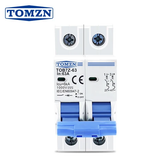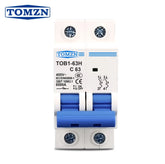Quality of MPPT Solar Charge Controller made in Pakistan. How to choose best MPPT ?
In the pursuit of harnessing clean and renewable energy sources, Pakistan has stepped into the limelight with its locally manufactured MPPT Solar Charge Controllers. These innovative devices are not only shaping the nation's energy landscape but also offering a glimpse into the country's technological prowess. Let's delve into the two main categories of these controllers and see how they compare to their Chinese counterparts.
Non-Hybrid MPPT Solar Charge Controllers: Reliability Amidst Challenges
The first category of MPPT Solar Charge Controllers, the non-hybrid variant, has created waves in the industry. With an input range of 20Volts to 80Volts DC, these controllers cater to both 12V and 24V battery systems. Brands like "Faisal MPPT," "Pak Tech," and "Micro Tech" have emerged as key players, providing innovative solutions to diverse energy requirements.
These controllers are designed to optimize solar panel power output, ensuring that batteries receive the maximum charge possible. While they offer versatility and compatibility, some users have voiced concerns about service quality and overall performance. Despite the promise of up to 6 months of brand warranty, a few complaints have surfaced regarding service response times and product quality.
However, these challenges shouldn't overshadow the potential these controllers offer. As the manufacturers address these issues, non-hybrid MPPT controllers could become an indispensable asset in Pakistan's renewable energy journey.
Hybrid MPPT Solar Charge Controllers: Bridging Gaps with Innovation
The second category, hybrid MPPT Solar Charge Controllers, introduces a higher level of innovation and user satisfaction. Operating within an input range of 25Volts to 145Volts DC, these controllers also accommodate both 12V and 24V battery systems. Brands like "Sinko" and "Simtek" have gained popularity for their auto-detection capabilities and robust safety features.
One year of warranty coverage and higher customer satisfaction levels set these hybrid controllers apart. Auto-detection eliminates the complexities of manual configuration during installation, making them more user-friendly. The integrated safety features, including protection against overcharge, over-discharge, voltage fluctuations, and short circuits, have garnered positive feedback from users.
Comparing with Chinese Solar Charge Controllers: A Local Advantage
The proliferation of Chinese solar charge controllers is undeniable, but the emergence of Pakistani brands in the MPPT controller market adds a local touch. The primary advantage of domestic brands lies in their understanding of the region's unique energy landscape and environmental conditions. This familiarity allows for the development of controllers that are tailor-made for Pakistan's specific requirements.
Furthermore, local brands often provide better customer support, shorter response times, and access to readily available spare parts. This translates to a smoother customer experience and quicker issue resolution, which can be a game-changer for those investing in solar power systems.
Conclusion: A Bright Future Ahead
Pakistan's journey into the realm of MPPT Solar Charge Controllers showcases the nation's commitment to renewable energy solutions. The non-hybrid category, represented by "Faisal MPPT," "Pak Tech," and "Micro Tech," offers versatility but faces some challenges in terms of service quality. On the other hand, the hybrid category, with "Sinko" and "Simtek" at the forefront, boasts innovation and high customer satisfaction levels.
While Chinese solar charge controllers dominate the market, the local advantage that Pakistani brands bring should not be overlooked. The focus on regional conditions and superior customer support provides an edge that can contribute to a more efficient and effective transition to solar energy.
As these brands continue to evolve, Pakistan's MPPT Solar Charge Controllers have the potential to play a pivotal role in shaping the country's energy landscape, promoting sustainability, and paving the way for a brighter, cleaner future.





